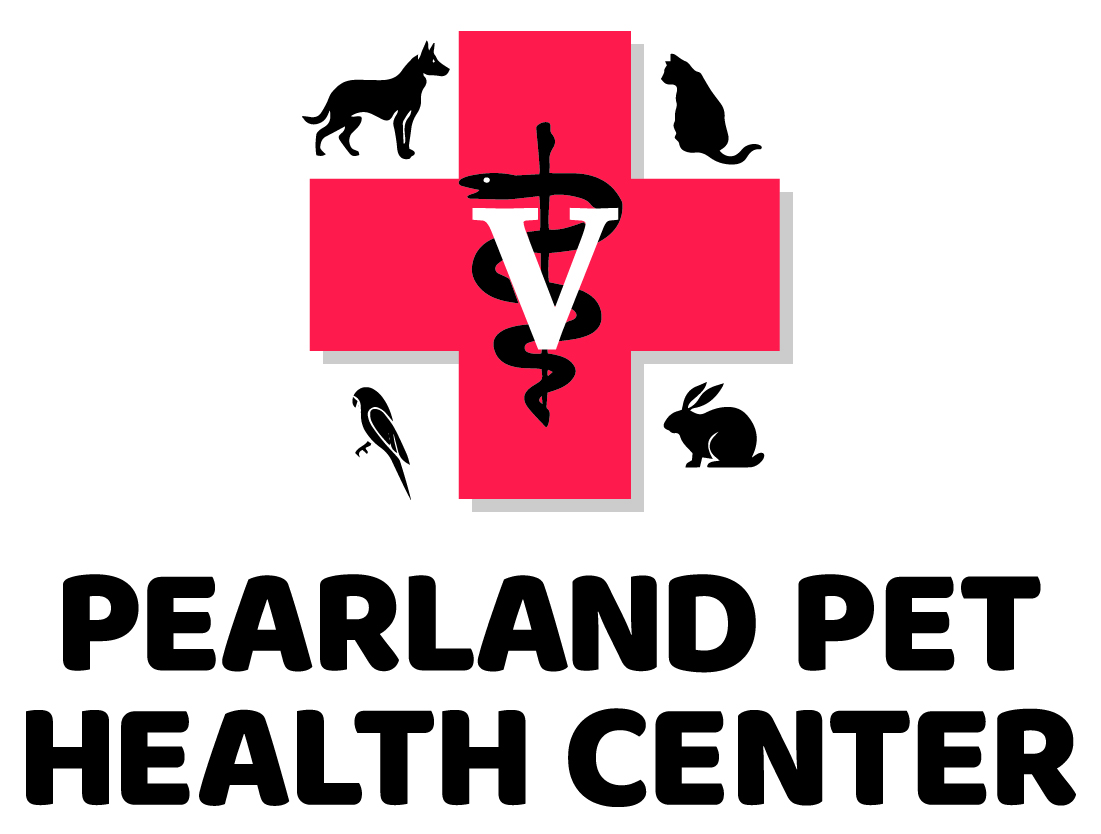Soft-tissue and orthopedic surgery in Pearland
Our doctors are highly qualified to perform all aspects of surgery from a routine spay or neuter to repairing a torn ACL. Each pet is treated with compassionate care before and after the surgery. All pets are administered pre- and post-anesthetic pain medication and sent home with detailed discharge instructions, tailored individually to each pet's situation so that you are confident in how you can help your pet with a safer, faster recovery.
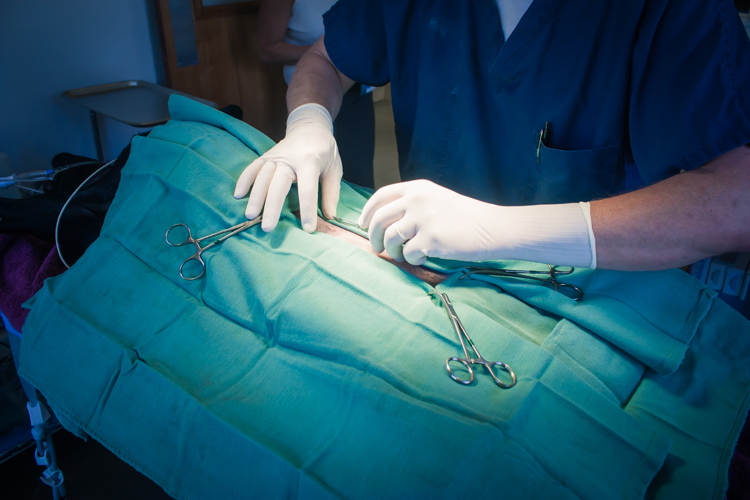
Our Surgical Services
We’re pleased to offer a combination of orthopedic and soft-tissue surgeries for our patients from our-highly trained veterinary team, which include:
- Spay (ovariohysterectomy)
- Neuter (routine or cryptorchid)
- Pyometra
- Soft-Tissue (growth removals and laceration repairs)
- Abdominal surgeries (such as exploratory surgery, bowel resection, and organ biopsies)
- Caesarean Sections
- Bone / Fracture Repair
- ACL / CCL Repair (we offer several options, including TPLO)
- FHO (femoral head ostectomy)
- Cryotherapy
- Bladder Stone Removal
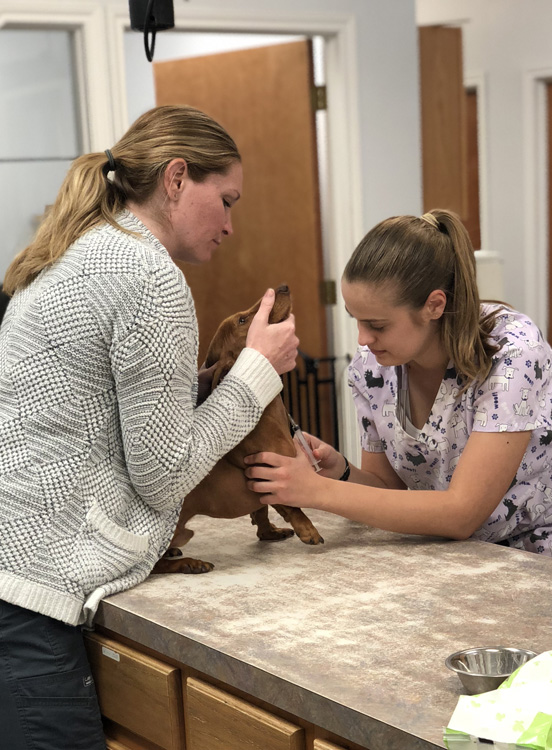
Drawing blood in preparation for surgery.
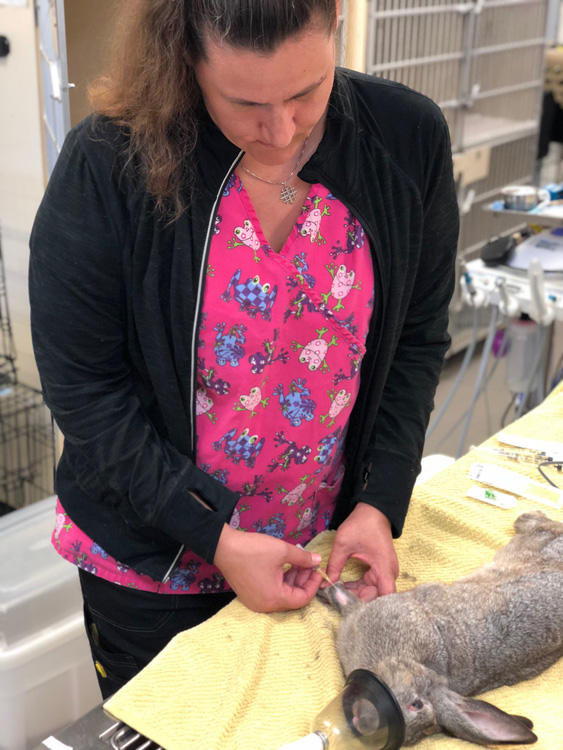
A sedated rabbit being prepared for surgery.
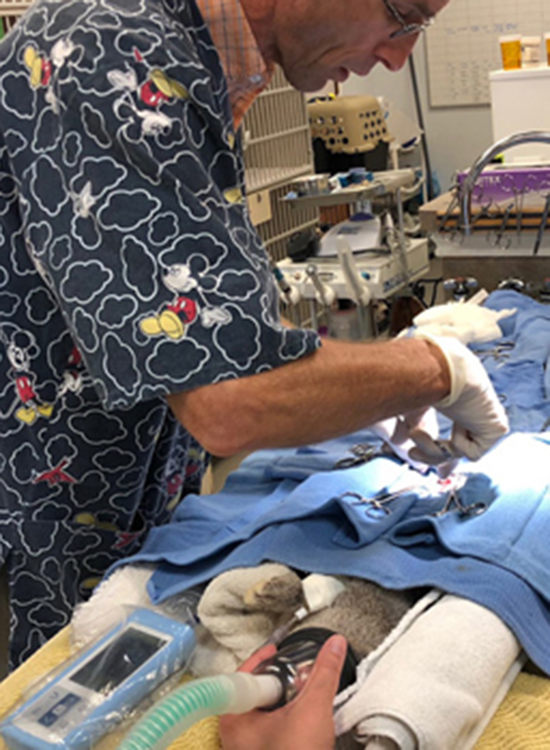
Dr. May neutering a rabbit. Routine, but med / high risk.
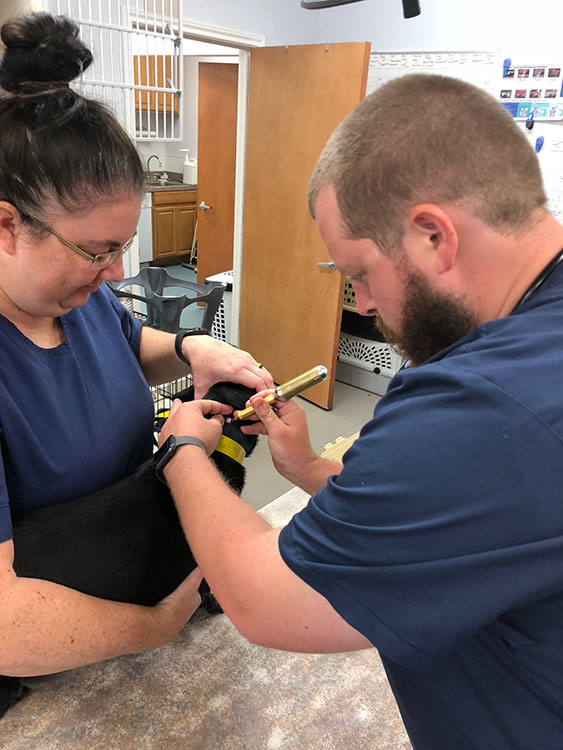
Lucky is having a growth treated with our cryotherapy unit.
Contact us if your pet needs a surgical consultation
How we make your pets surgery safer
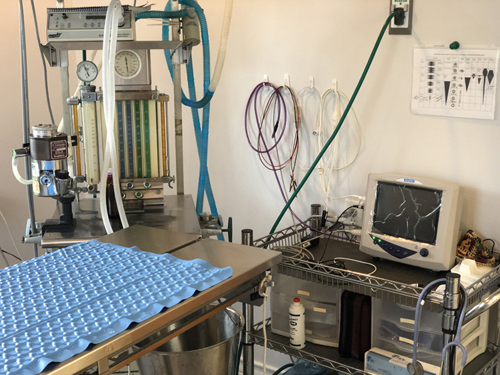
Our surgery suite has heat support, adjustable Sevoflurane gas, a breathing machine, as well as a monitor that keeps track of EKG, SPO2, blood pressure, temperature, and CO2.
Before your pet's surgical procedure, the doctor will do a pre-anesthetic exam. This exam ensures that your pet is at their optimal health for the procedure. We also recommend and perform pre-surgical blood work on any pet being anesthetized so that we have a better idea of how their body is working and we can make adjustments. This is generally done in-house on the morning of surgery or within a week of surgery for the most up-to-date results.
Our blood work is a full panel that includes:
-
- CBC
- Albumin (ALB)
- Alkaline Phospatase (ALKP)
- Alanine Aminotransferase (ALT)
- Blood Urea Nitrogen (BUN)
- Creatinine (CREAT)
- Glucose (GLU)
- Total Protein (TP)
- Electrolytes
- Clot Time
If we find anything in our exam or laboratory that is not a routine finding, our team will contact you with the abnormal findings so we can make the decision together on what is best for your pet.
Once cleared for surgery, anesthetic drugs will be calculated based on the pet's current weight. Some anesthetic drugs are given in the muscle, but most are given intravenously. Almost all pets will have an IV catheter placed for surgery. This is most often put in a front leg, but a pet's back leg or neck can be used. The IV catheter will always be removed before your pet goes home.

